Yemen: How fishing communities are fighting back
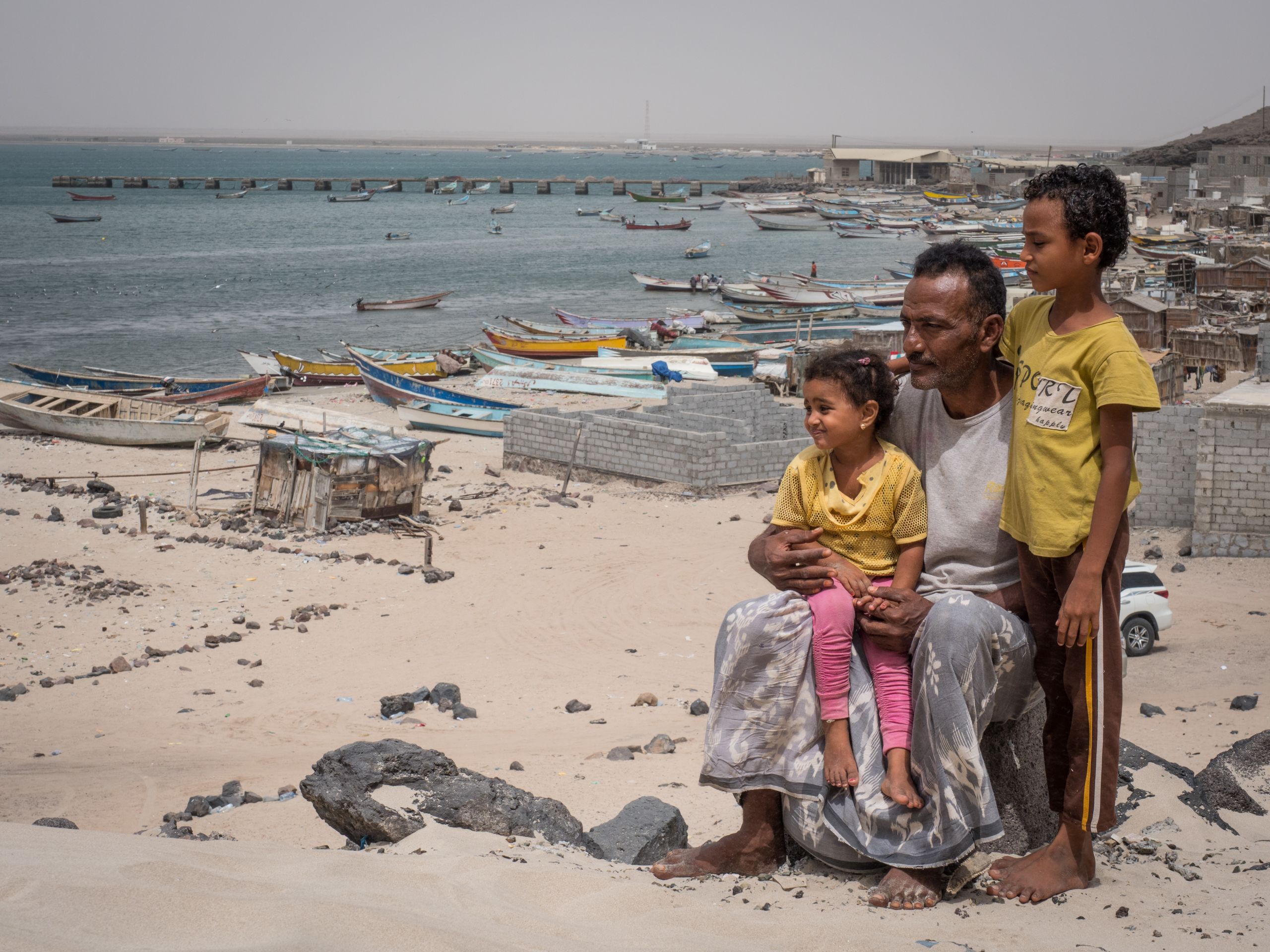

Paul Ireland
Communications Adviser / NRC
“The sea is our source of livelihood. Without the sea we cannot live,” says Suleiman, a 45-year-old fisherman from Hodeidah.
Coastal communities in Yemen have suffered greatly in the ongoing bloody conflict. Fishing boats, ports and processing sites have been destroyed or damaged, and many fishermen have lost their lives. For Suleiman, the risks became too great, and he was forced to flee with his wife and seven children.
Now, the Norwegian Refugee Council (NRC) is helping to revive the fishing industry in southern Yemen, rebuilding essential facilities so that fishermen like Suleiman can continue to support their families.
“I know many fishermen who have been killed at sea and in the fish market. They were without sin and had no connection to politics or the state.”
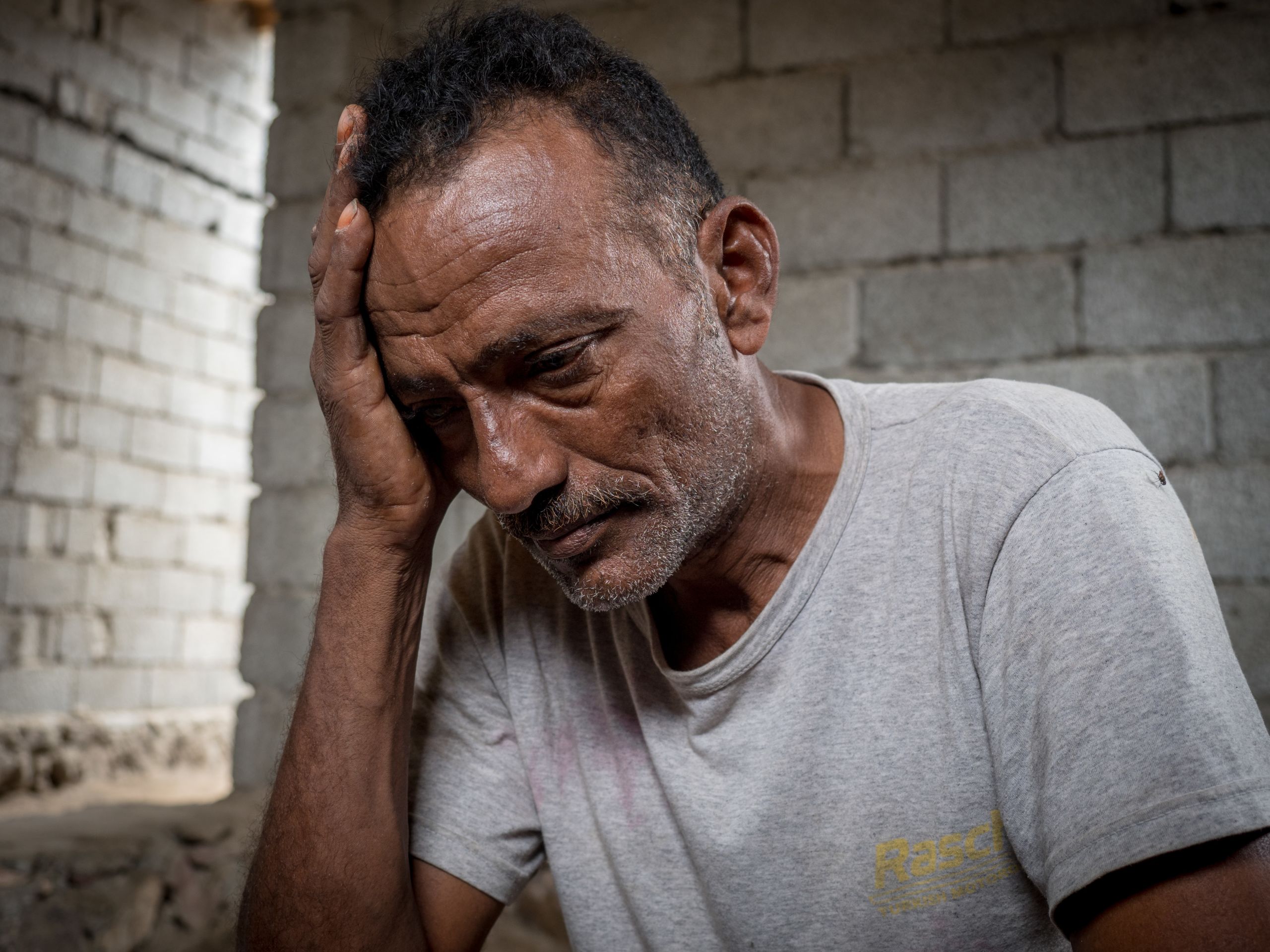
Suleiman, 45, is a fisherman from Hodeidah. He used to have his own small boat, but was forced to flee with his family when conflict hit the fishing industry.
Fishing in Yemen
Mention Yemen and fishing, and many people think of the 2011 film Salmon Fishing in the Yemen, starring Ewan McGregor. However, this whimsical story, about an attempt to introduce the sport of fly fishing to the Yemeni desert, has little to do with the real world.
Before the war in Yemen began in 2015, the fishing industry employed more than half a million people and was the country’s second biggest export behind oil and gas. Thousands of boats fished the rich waters of the Red Sea and the Gulf of Aden for tuna, sardines, mackerel, lobster, cuttlefish and more.
Suleiman lived and worked in the port city of Hodeidah, on Yemen’s west coast. He had a small fishing boat and would often stay out at sea for days at a time. Life was difficult and strenuous, but it was safe, and he was able to provide for his family.
“I do not know if my house was hit or stolen. The most important thing is that my family and I are safe and secure.”
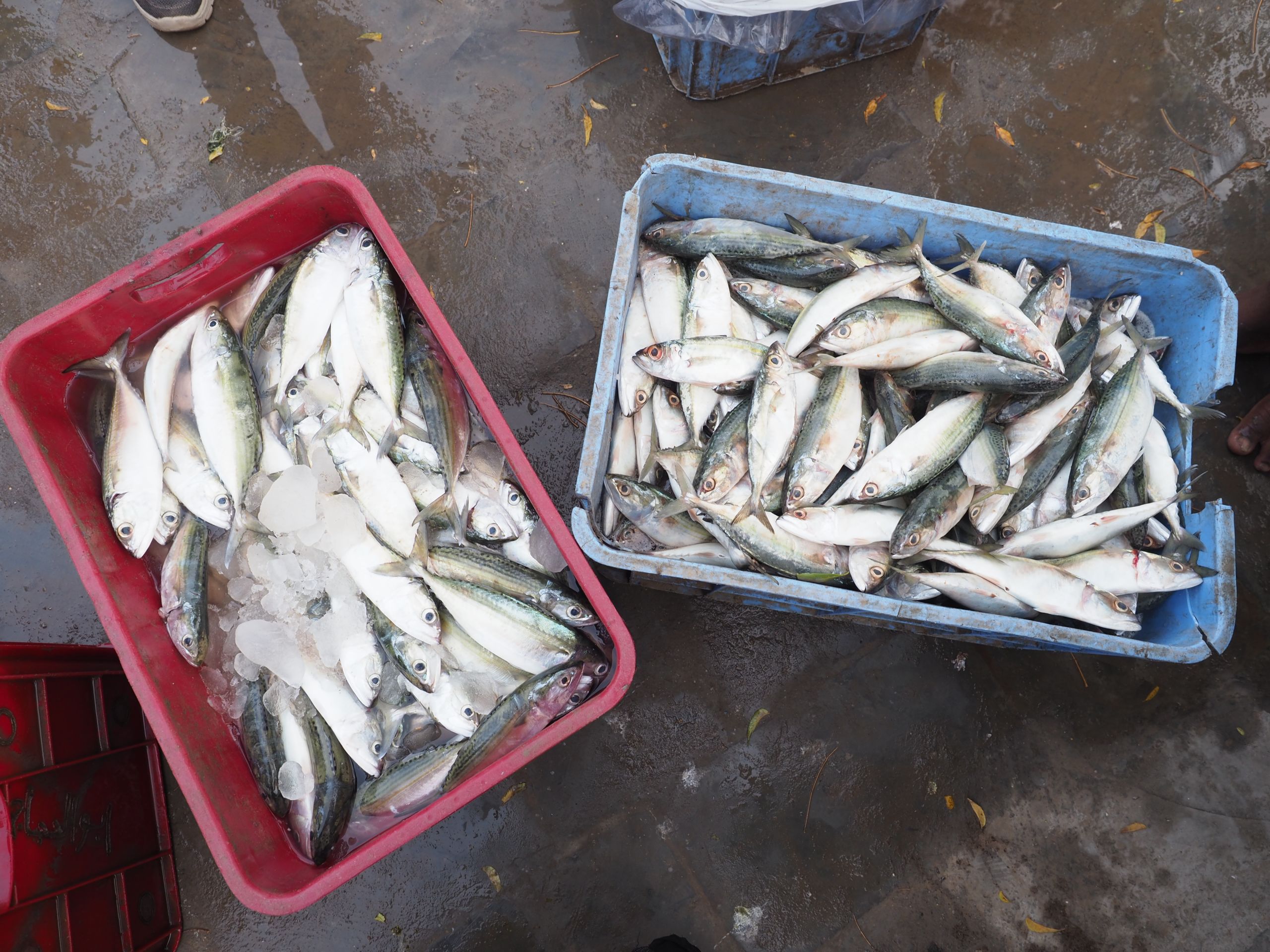
Catch of the day. Each month around 100 tonnes of fish are traded at the Al Hotta Lahj fish market, with an estimated value of USD 18,000.
Fear at sea, fear on the streets
Then, violence came. The Saudi-led coalition launched airstrikes which hit fishing boats and markets, and mines were laid in the sea making the waters treacherous. Many of Suleiman’s friends were killed. To make matters worse, the price of fishing tools and fuel went up dramatically because of the conflict.
“The difficulties we faced in Hodeidah included the high cost of living,” Suleiman explains, “and we felt fear at sea because of the war, the battleships and the mines. I know many fishermen who have been killed at sea and in the fish market. They were without sin and had no connection to politics or the state.”

Now Suleiman works with other fishermen in Ras Emran, near Aden, for a daily fee of between USD 12 and 20.
As the conflict drew closer, Suleiman and his neighbours began to store food, worried that they would not be able to leave their homes. When the violence reached his neighbourhood, he had to take a tough decision. Fearing for his children’s lives, he decided to flee.
Suleiman sold his animals and his wife’s jewellery to pay for the trip. He and his family left with only the clothes they were wearing. They travelled for three days, arriving at last in Ras Emran, a coastal village near the southern city of Aden where Suleiman was able to take up fishing again. “I do not know if my house was hit or stolen,” he reveals. “The most important thing is that my family and I are safe and secure.”

Suleiman, 45, is a fisherman from Hodeidah. He used to have his own small boat, but was forced to flee with his family when conflict hit the fishing industry.
Suleiman, 45, is a fisherman from Hodeidah. He used to have his own small boat, but was forced to flee with his family when conflict hit the fishing industry.

Now Suleiman works with other fishermen in Ras Emran, near Aden, for a daily fee of between USD 12 and 20.
Now Suleiman works with other fishermen in Ras Emran, near Aden, for a daily fee of between USD 12 and 20.

Catch of the day. Each month around 100 tonnes of fish are traded at the Al Hotta Lahj fish market, with an estimated value of USD 18,000.
Catch of the day. Each month around 100 tonnes of fish are traded at the Al Hotta Lahj fish market, with an estimated value of USD 18,000.
Danger zones and seasonal slumps
Even in the relative safety of Ras Emran, there are challenges. The ongoing conflict has forced fishermen to stay away from dangerous areas at sea and made them nervous of venturing too far from the port.
Ammar, 42, is a fisherman and one of the community members in Ras Emran working on an NRC project supporting fishermen. “We are afraid to go to distant places for fear of being killed,” he confides. “We heard that fishermen were hit in Hodeidah and we were afraid to face the same fate.”
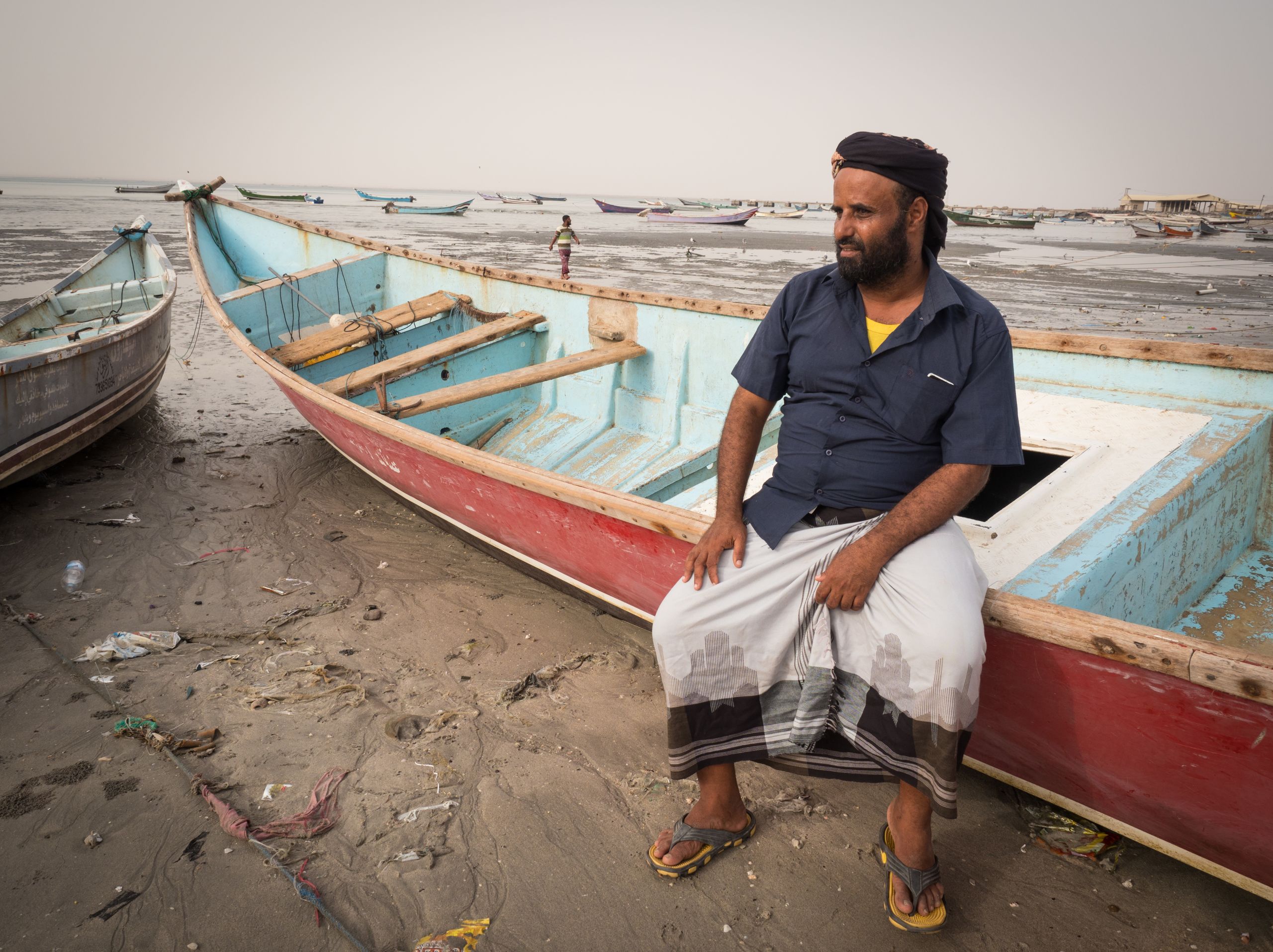
Ammar, 42, is a fisherman from the Ras Emran area of Aden. He is facing difficulties because the conflict in Yemen has pushed up prices for fishing tools and fuel, and has also made the sea more dangerous.
In addition, there are now restrictions on accessing certain fishing zones, imposed by security forces and in some cases local authorities. Ammar explains: “Before we were fishing freely anywhere without restrictions. Now we are limited to a distance of a few miles.”
The seasonality of fishing is also a challenge. “The fishing season only lasts about four or five months of the year,” says Ammar, who is married with four children. “Outside these months the fishermen have no other income and are forced to borrow or sell things to survive.”
“One of the difficulties facing us as fishermen in Yemen is the high price of fishing equipment such as engines and nets,” he continues. “Before, nets cost around 200,000 YER [Yemeni rial]; now they are as much as 500,000 or 600,000 YER. Engines have increased from 600,000 to 1,200,000 YER.”
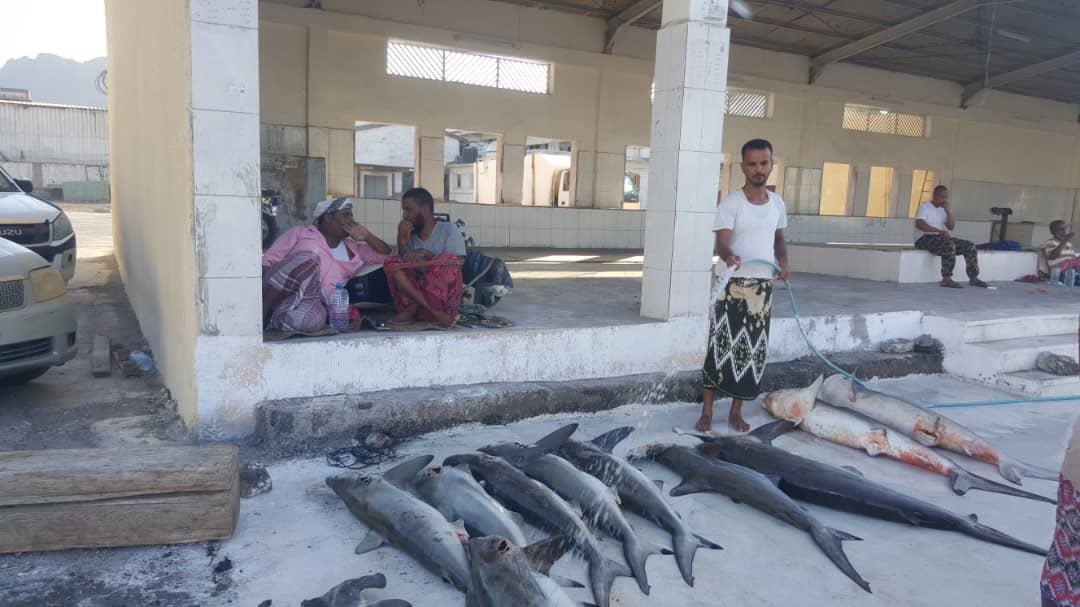
The Al Dockyard fish landing site in Aden has been rebuilt by NRC with support from the European Union.
Bringing new life to an ancient industry
The Norwegian Refugee Council (NRC) is supporting the coastal community in Aden and other areas in the south of Yemen, to revive this important but neglected industry. With financial support from the European Union, we are helping to rebuild essential facilities such as fish landing sites, markets and the fish testing laboratory.
This fish market at Al Hotta Lahj, near Aden, was established back in 1979 by the Yemeni government, but was damaged in 2015 due to the conflict and has been closed ever since. It has now been rebuilt and is open for business once more.
The market has become an important hub for the local fishing industry. Each month around 100 tonnes of fish are traded there, with an estimated value of USD 18,000. The market has 12 full-time employees, and more than 100 traders and retailers use it daily. As a result, the demand for fish has increased and fishermen are able to sell their catch more easily.
“In Yemen, fishing is an important but neglected sector. NRC is supporting fishermen by rehabilitating fish landing sites and fish markets. We are also providing fishing gear and safety kits to fishermen.”
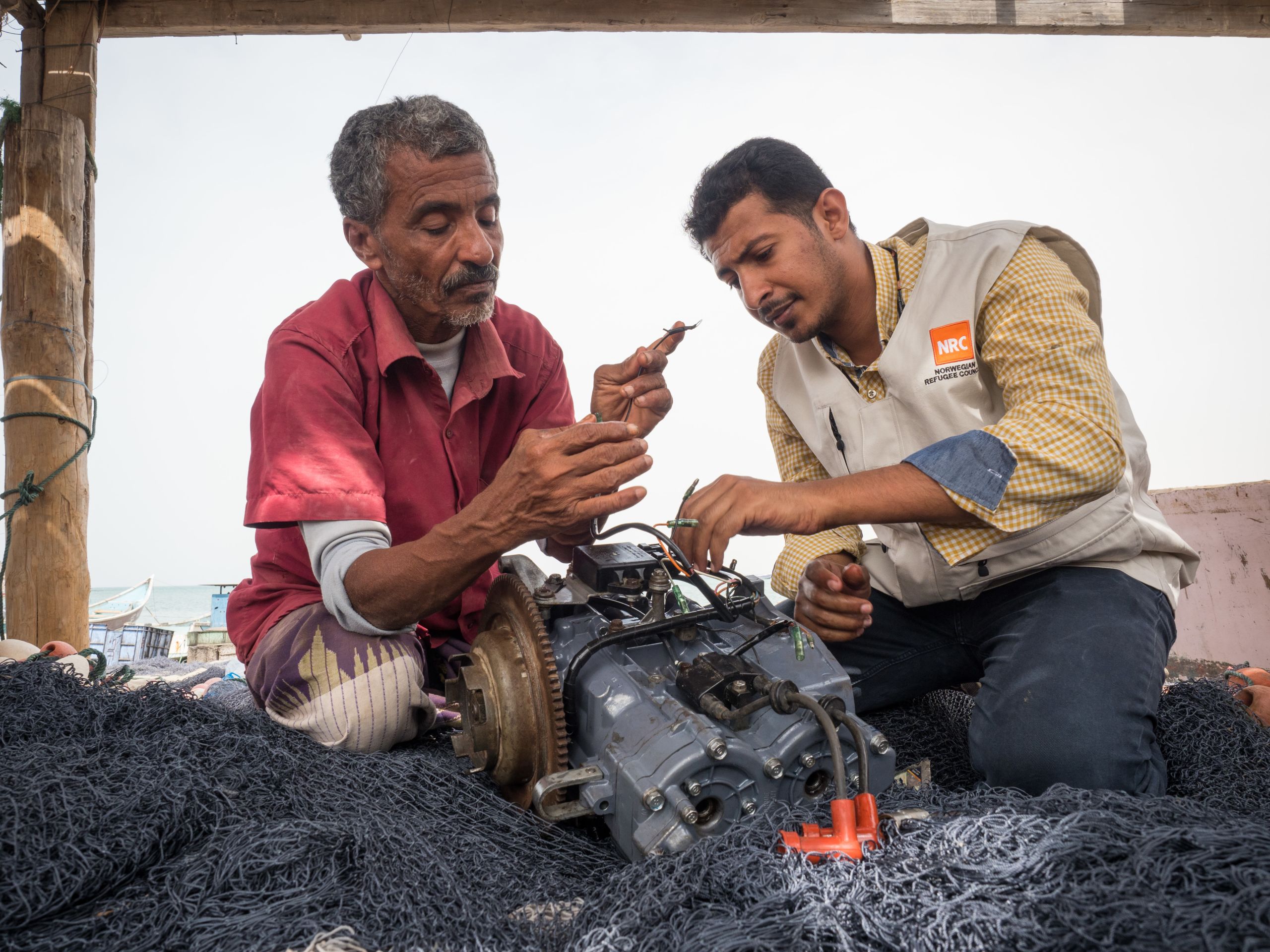
NRC Livelihood Officer Amr Al-Saqqaf explains about boat engine repair and maintenance to a local fisherman.
NRC has also renovated the central fish laboratory in Aden, enabling fishermen and traders to test the quality and safety of their fish products. This is an important export requirement and allows vendors to meet the standards required to sell their fish to other countries.
To improve safety, meanwhile, we are providing fishing gear and safety kits to fishermen and training them in engine maintenance and GPS technology. Modern weather forecasting tools will help fishermen avoid dangerous conditions. The objective is to prevent deaths and injuries at sea and reduce the number of boats lost each year.

Ammar, 42, is a fisherman from the Ras Emran area of Aden. He is facing difficulties because the conflict in Yemen has pushed up prices for fishing tools and fuel, and has also made the sea more dangerous.
Ammar, 42, is a fisherman from the Ras Emran area of Aden. He is facing difficulties because the conflict in Yemen has pushed up prices for fishing tools and fuel, and has also made the sea more dangerous.

The Al Dockyard fish landing site in Aden has been rebuilt by NRC with support from the European Union.
The Al Dockyard fish landing site in Aden has been rebuilt by NRC with support from the European Union.

NRC Livelihood Officer Amr Al-Saqqaf explains about boat engine repair and maintenance to a local fisherman.
NRC Livelihood Officer Amr Al-Saqqaf explains about boat engine repair and maintenance to a local fisherman.
New businesses, new hope
Fishing can be a precarious industry, and rarely provides an income all year round. Another NRC project is helping coastal communities to diversify their livelihoods so that they are not completely dependent on fishing. We are training 600 women to acquire skills that will enable them to develop their own small businesses, so they can generate an income of their own.
“I hope that my project will continue so that I can develop myself and my career, and my work will be unlimited and lighten the load on my shoulders.”
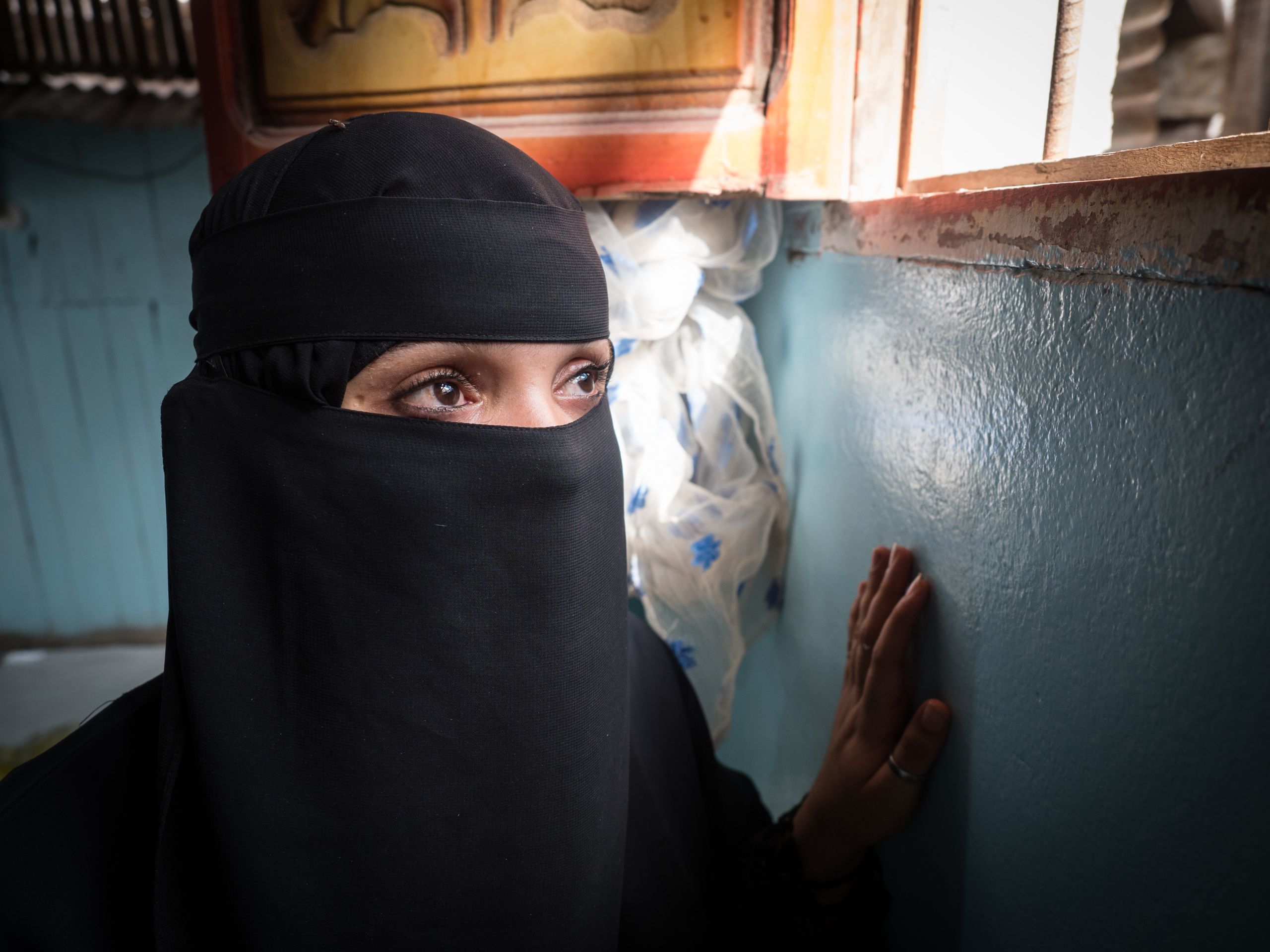
Alham, 24, is from Foqam near Aden. Her father was a fisherman but passed away through ill health, leaving Alham, her brother and three sisters with no source of income.
Alham, 24, from Foqam near Aden, is one of the women benefitting from the scheme. “My father was a fisherman, but he died, and after that we had no source of income,” she explains. “When I heard that my name was selected for this project I felt happy and less anxious about the future.”
Alham is receiving support for her “baby packages” business, aimed at new mothers. The packages include bed linen, a pillow, a basket and a cradle, and Alham makes each one by hand. She is planning to market her products through social media, and hopes that her business will grow so that she can make enough money to survive and help her brother and three sisters.
The project also gives the women involved more personal independence. Alham tells us: “I hope that my project will continue so that I can develop myself and my career, and my work will be unlimited and lighten the load on my shoulders.”
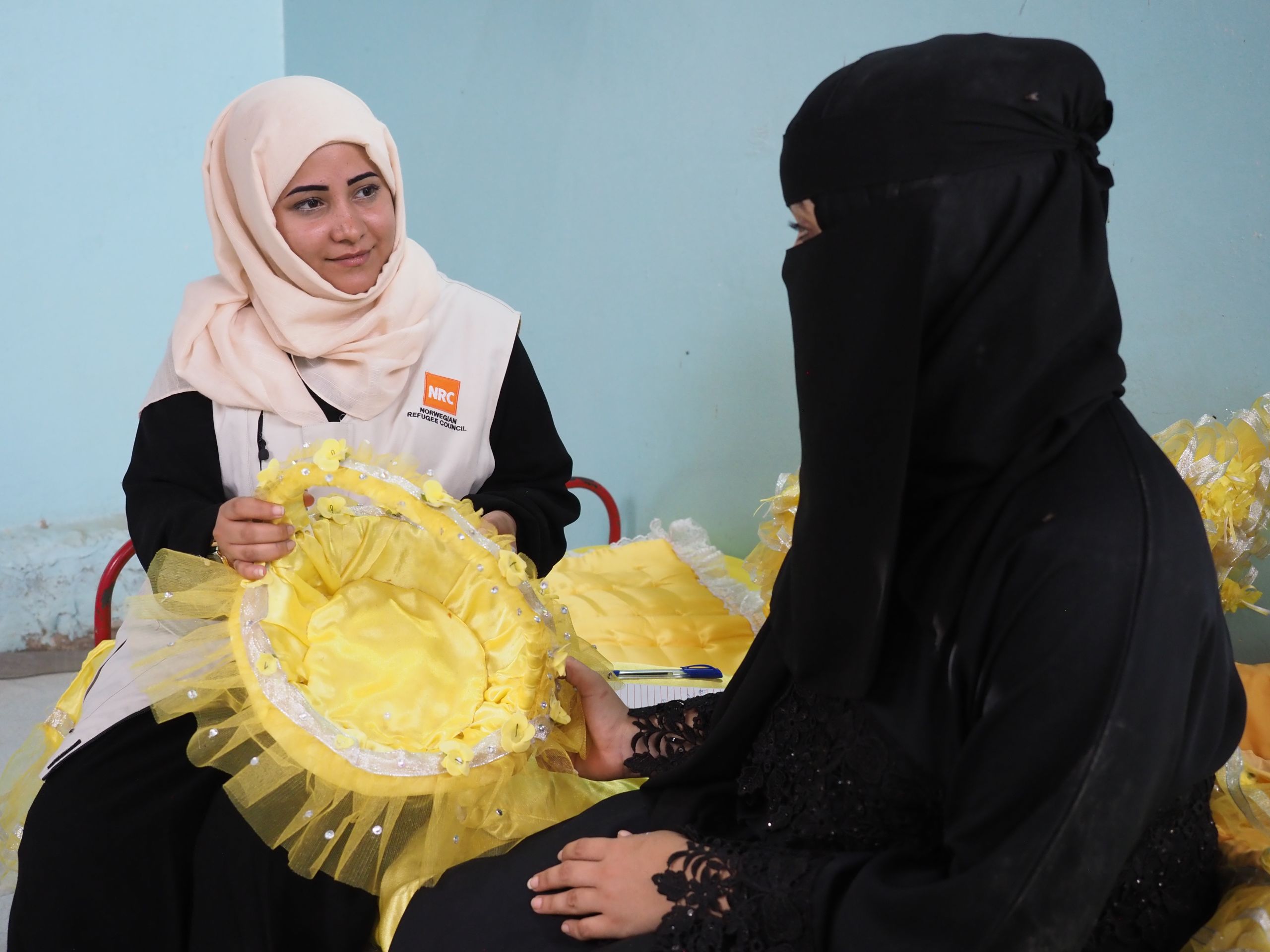
Alham is now receiving support from NRC to develop her business making “baby packages” for new mothers. Here she shows NRC Protection Officer Abrar Najeeb one of her handmade products
***
“I wish my children to have a happy life”
Although the fishing industry is showing signs of revival, life is still tough for those who have been displaced. Suleiman is finding it hard to adjust to his new surroundings in Ras Emran. “I feel it’s difficult to fit into a new place which is not your own area and home,” he explains. “You feel strange in any new area, because you cannot act or live freely in the way that you can in your hometown.”
He is still fishing, working with other fishermen in Ras Emran for a daily fee of between USD 12 and 20. It is not easy to get enough work to provide for his wife and seven children. They lost everything when they had to flee from Hodeidah.
“Help us to stop this war in a peaceful manner, and make Yemen safe and secure so that we can return to our homes safely.”
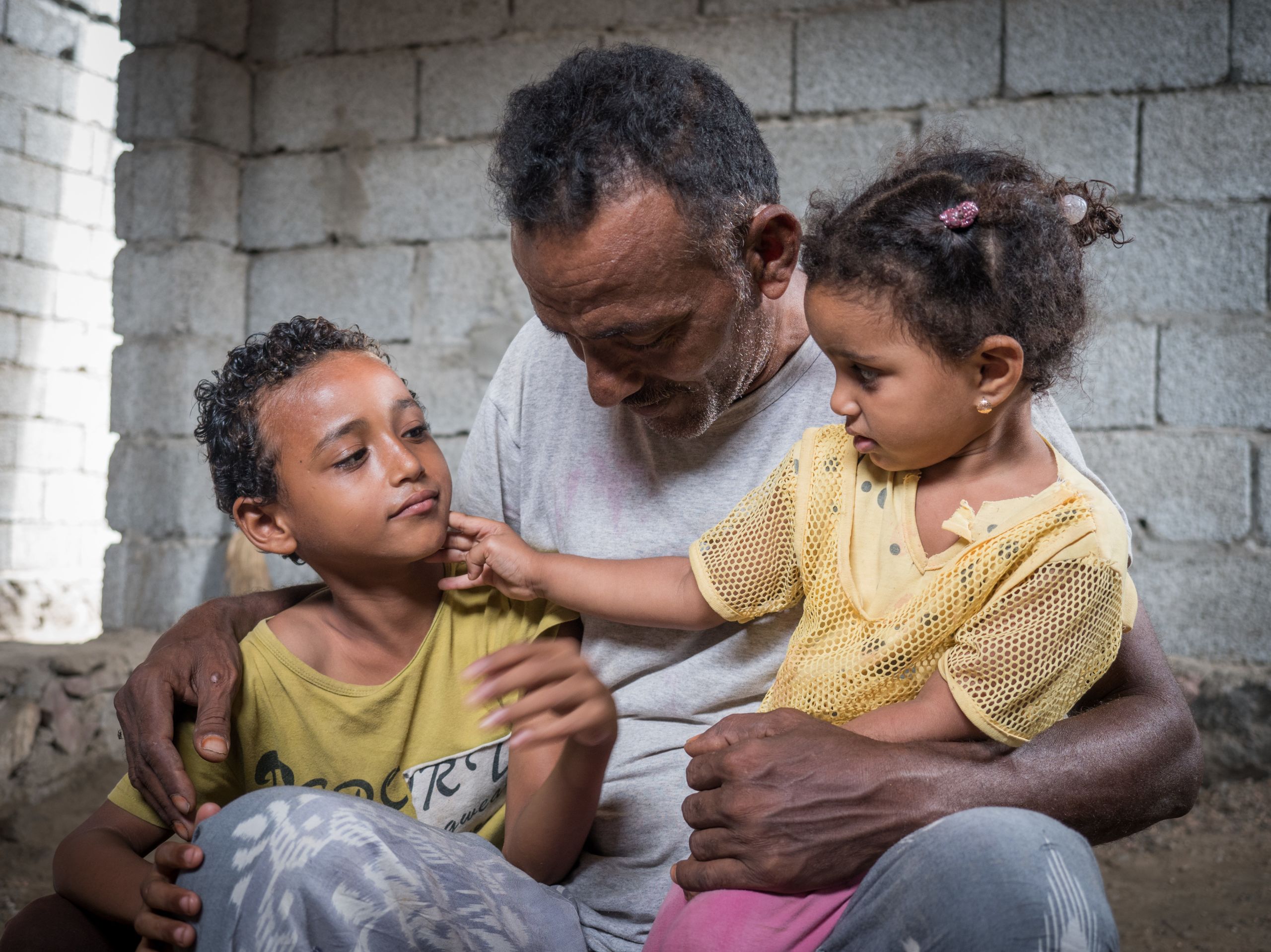
Suleiman the fisherman shares a tender moment with his son Ismail, 8, and granddaughter Retag, 3.
“We fled with the clothes that we have,” Suleiman recalls. “Now we don’t have anything and there are many things we need.”
Suleiman hopes that the war will end so he can return home and go back to work. He is especially concerned for his children’s wellbeing. “I wish my children to have a happy life like other children, and I hope to return to home in order to continue their education,” he explains.
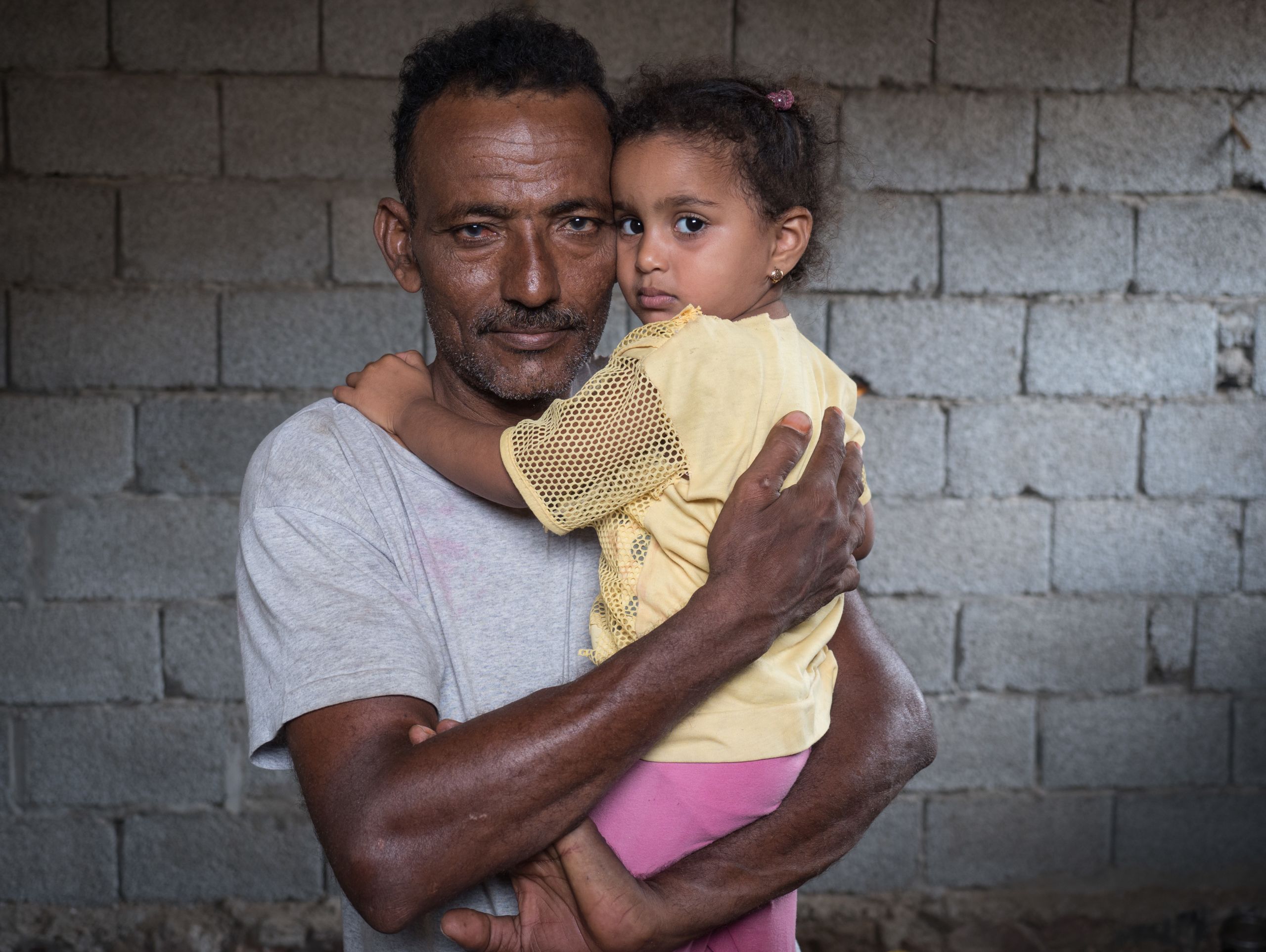
Suleiman hopes to return home one day so that his children can continue their education.
“My message to the international community is to help us to stop this war in a peaceful manner,” he concludes, “and to make Yemen safe and secure so that we can return to our homes safely, God willing.”

Alham, 24, is from Foqam near Aden. Her father was a fisherman but passed away through ill health, leaving Alham, her brother and three sisters with no source of income.
Alham, 24, is from Foqam near Aden. Her father was a fisherman but passed away through ill health, leaving Alham, her brother and three sisters with no source of income.

Alham is now receiving support from NRC to develop her business making “baby packages” for new mothers. Here she shows NRC Protection Officer Abrar Najeeb one of her handmade products
Alham is now receiving support from NRC to develop her business making “baby packages” for new mothers. Here she shows NRC Protection Officer Abrar Najeeb one of her handmade products

Suleiman the fisherman shares a tender moment with his son Ismail, 8, and granddaughter Retag, 3.
Suleiman the fisherman shares a tender moment with his son Ismail, 8, and granddaughter Retag, 3.

Suleiman hopes to return home one day so that his children can continue their education.
Suleiman hopes to return home one day so that his children can continue their education.
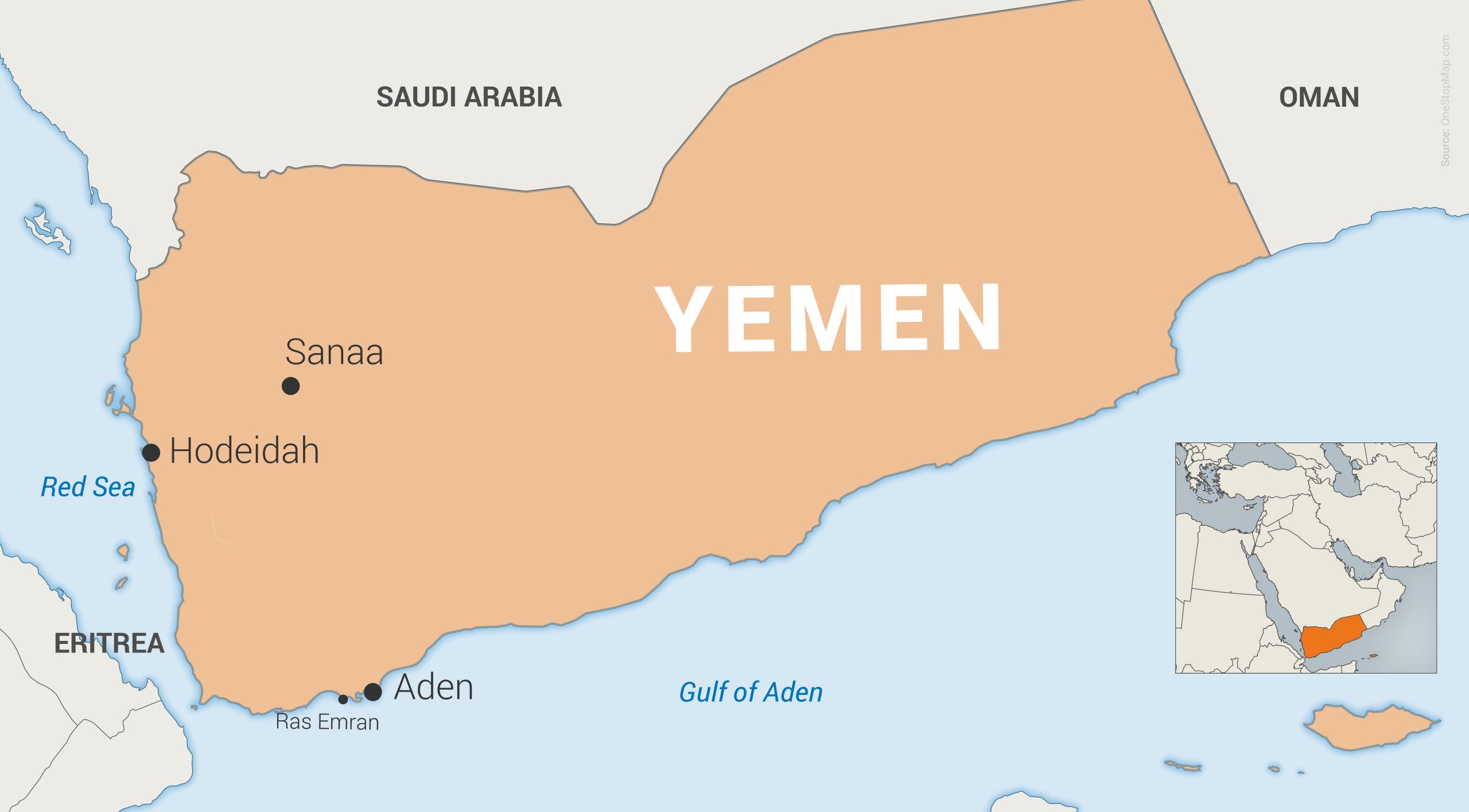
Key statistics
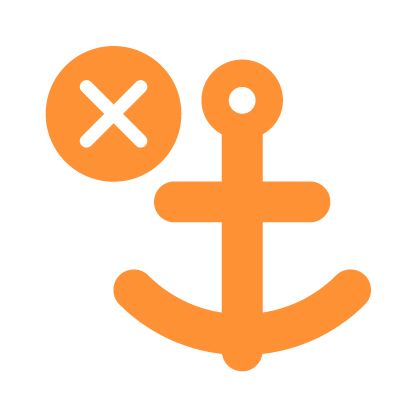
Nearly 1/3
of agricultural production and fishing, where most Yemenis have traditionally worked, has disappeared since the escalation of the conflict.

USD 6.9 billion
is the cost to the fishery sector as a result of damage to harbours, landing centres and boats (source: Yemen’s Fisheries and Aquaculture Authority statistics).
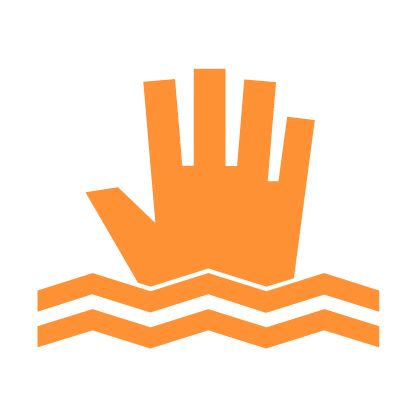
At least 334 fishermen
At least 334 fishermen have been reported killed or injured since 2015 (source: Yemen’s Fisheries and Aquaculture Authority statistics).
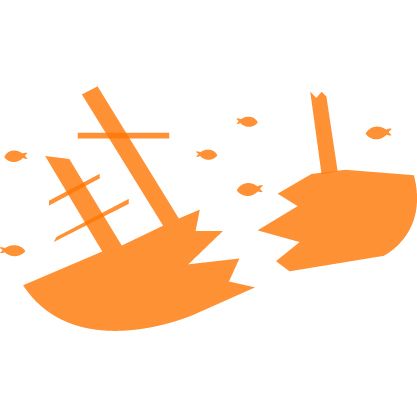
2 fishing depots and 35 boats
were reported damaged or destroyed by airstrikes, shelling and sea mines in 2018 (source: Civilian Impact Monitoring Project).


